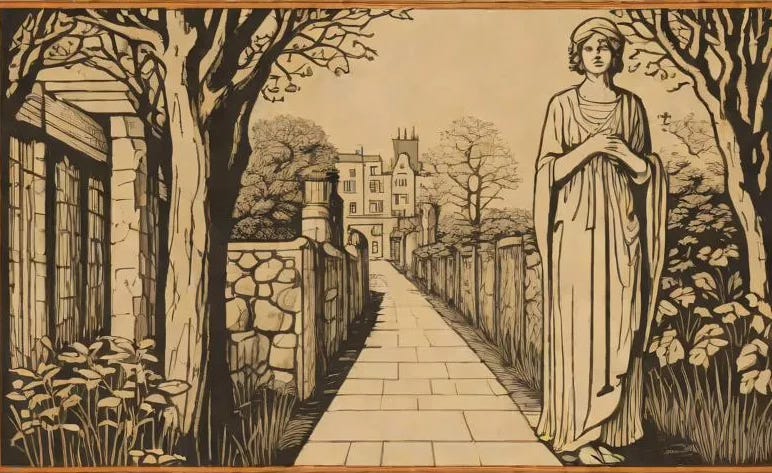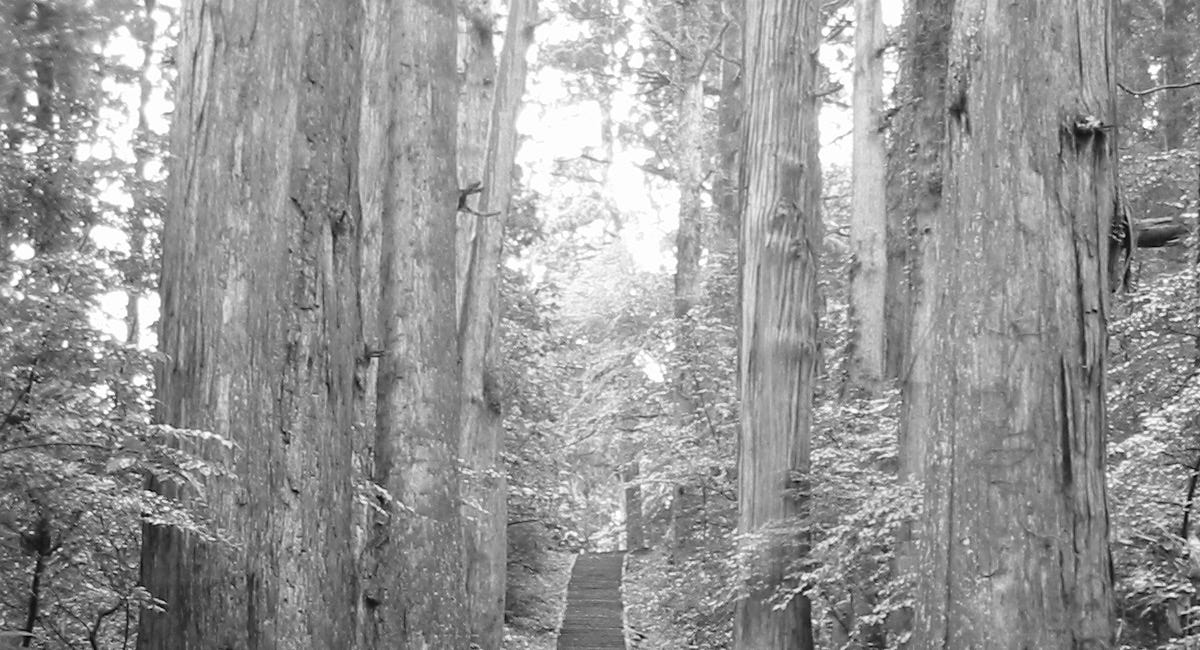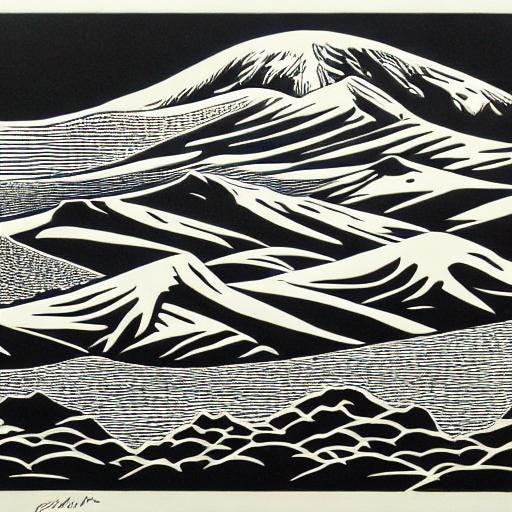Mystablogical miscellanea
Select texts for new subscribers
Greetings from Tokyo, where the birds are just returning to find refuge in the nascent blossoms, among them the little mejiro:
One white-eye shoots green
Afoot the fort of shipping crates.
Rust and song conspire
Against a salt-grey sky.
I am delighted to welcome many new readers to Catechetical Mystablogy this month. For some of you, this will be your first email from me. Thank you for inviting me into the dizzying plethora that no doubt clogs your inbox as it does mine.
For the sake of relatively new readers, I thought a brief survey of some older posts might be helpful, and hope that this short list might help you navigate my sundry scribblings.
Scripture
Scripture is my start point, aided by the Fathers and the Platonic tradition in the broadest sense. This first essay on Wisdom starts from Proverbs 8 and builds up the picture, followed by a much more detailed zoom-in on the figure of the Forerunner, St John the Baptist.
The Lover at the Wayside
Does not wisdom call, does not understanding raise her voice? On the heights beside the way, in the paths she takes her stand; beside the gates in front of the town, at the entrance of the portals she cries aloud: “To you, O men, I call, and my cry is to the sons of men.”
Skin and water, flesh and blood
“Why is he wearing those strange things?” It’s a question that probably crosses the minds of those who see me cassock-clad in the local Tobu Store supermarket or dropping my daughter off at nursery, though the Japanese are too polite to ask out loud. I was asked a few times and rather more bluntly, shall we say, back in England.
Dionysius
After Scripture, the single greatest influence on my thought and spirituality is the work of Dionysius the Areopagite. This commentary is the beginning of a longer (and as yet incomplete) reading of his Mystical Theology, the summation of his work:
Dionysius' Mystical Theology I.i
Dionysius the Areopagite, readers may have noticed, exercises a strong influence on my imagination, as well he might. Nobody really knows, after all, who he was. I am of the school which omits the prefix “Pseudo,” not because I think that the author of the Dionysian Corpus (hereafter abbreviated to CD, following the Latin Corpus Dionysiac…
Sacramental Metaphysics
Dionysius’ liturgical view of the cosmos inspires my understanding of God’s self-manifestation in the world, and the Church’s priestly and kingly vocation of reconciliation:
The Carpenter
Once, God was a carpenter. The One who gave wood life with His breath first gave it shape with His mind. The Word who blessed wood with His blood blessed it first with His hands. For He bears the perfect image of His Father, and His Father is a maker. So His Father gave Him to a maker for adoption, made the Divine Maker…
Memory, Monarchy and Metaphysics
By day the shuttle flies, by night the thread unravels. Odysseus has been blown to the shores of Aiaia, the home of Circe, witch queen and goddess. She drugs his men and uses magic to turn them into pigs. With the help of Hermes, the hero frightens her into releasing the spell, but lured by the pleasures of her table and her bed, he stays on. A year pass…
Spirituality
As a priest, I also try to give some more practical teaching on how to apply these lofty metaphysical ideals to the daily life of prayer:
Saying the Lord's Prayer Backwards
This is not a post about exorcist movie tropes. Sorry to disappoint if that’s what you were expecting. Rather, I wanted to share some thoughts inspired by Jonathan Pageau’s podcast episode on the Lord’s Prayer. Pageau describes how the prayer encompasses the whole of reality from top to bottom, starting with God i…
A Tale of Three Mountains
It’s some years now since my wife and I climbed Dewa Sanzan, a range of three sacred mountains in the northwest of Japan. The full story, including my encounter with a hypnotist shaman, will have to wait for another post. Today we’ll have to make do with a quick scramble up each slope as a prelude to the the spiritually higher peaks I want us to ascend …
Buddhism
Christian Platonism provides the foundation for my long-standing work on Buddhism, and especially the True Pure Land tradition:
An Infinite Forest of Meaning
Catechetical Mystablogy is a reader-supported publication. To receive new posts and support my work, consider becoming a free or paid subscriber. Few would dispute that modernity has its problems, though precisely what those are is contested. …
Anglicanism
Readers may be forgiven for not realising that I am an Anglican, and an English one at that. If that doesn’t put you off, you may like to read some of my thoughts on monarchy and the Book of Common Prayer.
The Prayer Book and the Culture Wars
Only in my mid-twenties did I realise that I had been brought up to believe in some strange things. I was inculcated throughout my youth with outlandish and undemonstrable doctrines, dogmatically asserted by authority figures and reinforced by the approval of my peers. Anyone bold enough to venture criticism or a rival position was quickly ridiculed int…
Finally, in preparation for Easter, here follows some thoughts on that great feast of the Light and its Platonic resonances:
Light inaccessible
A church I once frequented used to give me one of the best spiritual moments of the year by timing the Easter vigil so accurately before daybreak that the sun poured in exactly as the bells rung, the veils were pulled off the crosses and statues, and the first Gloria in Excelsis of the new season was sung.
I pray that at least some of these words may help you pursue a blessed Lent. If so, please do share them with others:
Yours in Christ
Fr Thomas Plant












